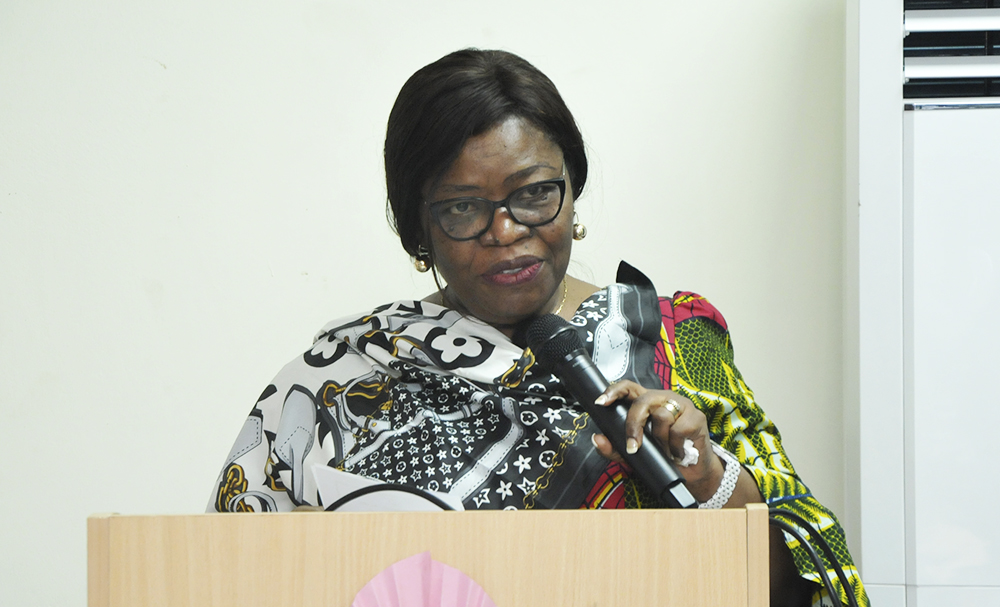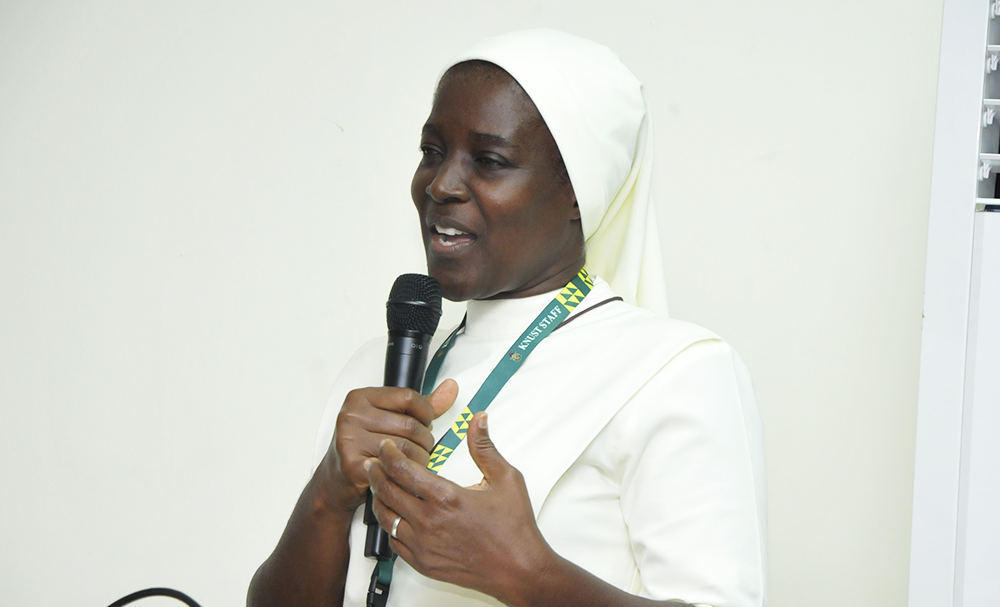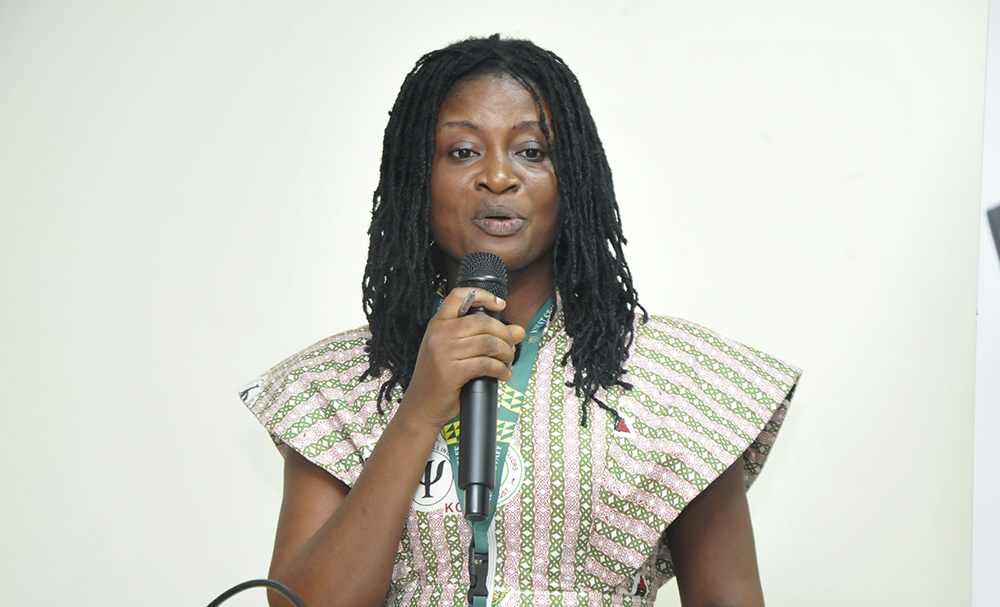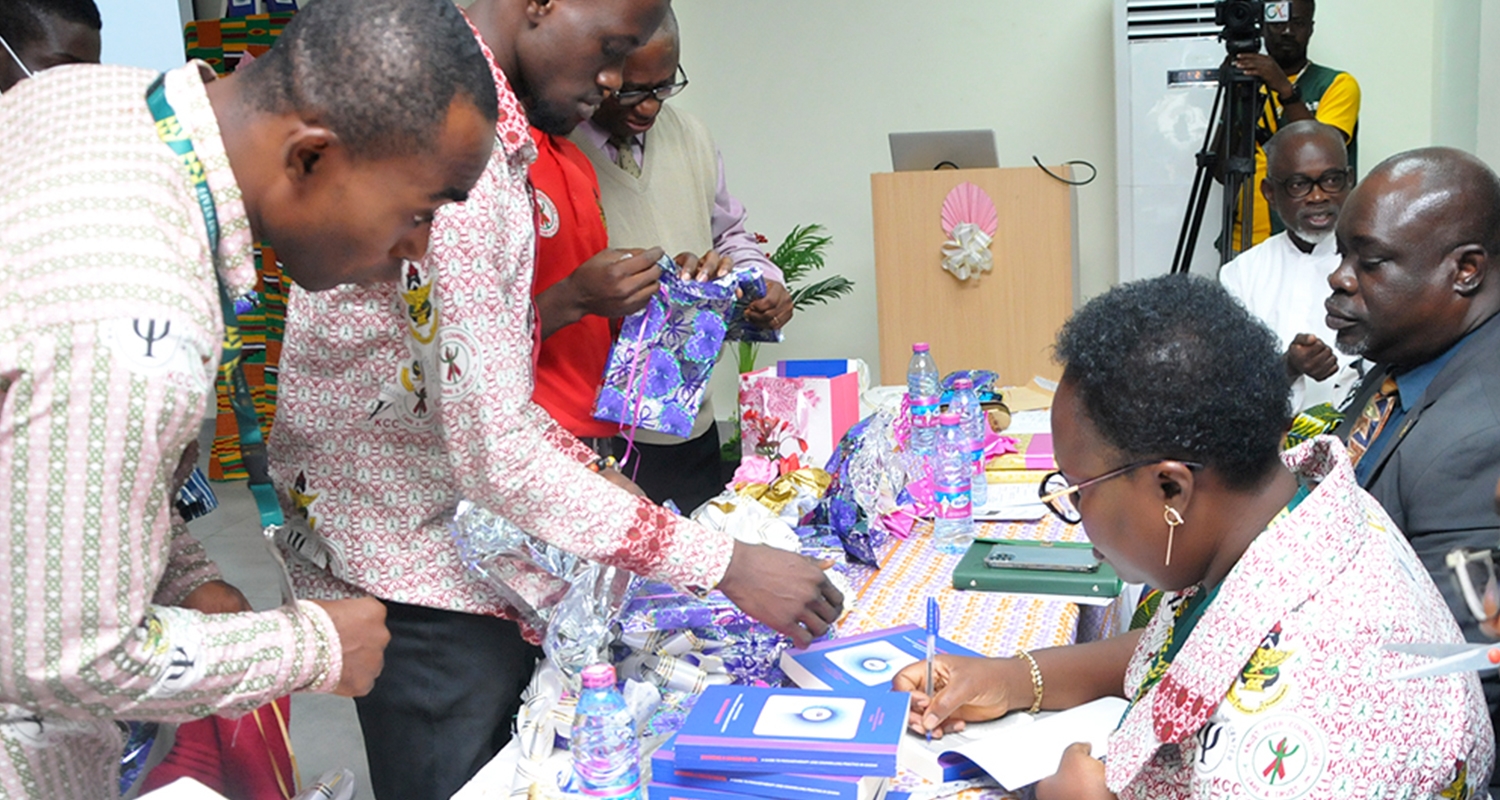A book that serves as a manual for the practice of psychotherapy and counselling in Ghana has been published by professionals at the Kwame Nkrumah University of Science and Technology Counselling Centre (KCC). The book, becoming a Skilled Helper: A Guide to Psychotherapy and Counselling Practice in Ghana, was written by several experts and KCC professionals with extensive experience in the field, including clinical and counselling psychologists. It has 12 chapters and is based on reliable psychological theories. Launched under the auspices of the Ghana Psychology Council (GPC), the content reflects what has worked for practitioners and clients in the Ghanaian setting, and deals with topics such as ‘Depression’, ‘Suicide: A Cry for Help’, ‘Stress Management and Resilience’, ‘Anxiety’, ‘Ethical Issues in Counselling’, ‘Working with Persons with Serious Mental Illnesses’, ‘Contemporary Challenges for the Youth’, ‘Sexuality Issues in Counselling’ and ‘Relationships Distress and Wellbeing of the Youth’.

Launching the book, the Registrar of the Ghana Psychology Council, Dr. Dinah Baah Oddoom, lauded all the contributors for the book concepts, saying the launch was timely. It is meant for practitioners, students, and interns in the helping professions, especially those who struggle to apply their theoretical knowledge to culturally appropriate approaches and practice. “It has come at a time when many newly-qualified psychologists and contributors are looking for a resource that will help them apply western theoretical concepts of psychology to our Ghanaian cultural context and worldviews”, the Registrar observed.
Dr. Dinah Baah Odoom, the writer of the foreword of the book, encouraged all practitioners’ to get the book to improve their knowledge in administering the right treatment to people. “So, I like the title ‘skilled helpers. It means it is for everybody whether one has an education in counselling or not.
“When you read the book, you should be able to understand certain things so that in your own corner you will be able to help people the right way,” she said. The book was written with the Ghanaian culture and society in mind and can guide professionals in the effective discharge of their services, she stated.
Professor (Mrs.) Rita Akosua Dickson, the Vice-Chancellor, in a message delivered on her behalf, by Professor Charles Marfo, acknowledged the good work of the authors and other contributors. She said the book was also relevant within the University’s setting since mental and emotional health was important for a productive engagement and realisation of the Institution’s own mandate.

Professor Sister Frances Emily Owusu-Ansah, Head of the Department of Behavioural Sciences and one of the editors of book, in her address, said the perception of etiology of illness (physical and mental) “expands beyond the biological to include moral, social and spiritual dimensions.” This explains the intimate link between cultural constructions of etiology of mental illness and treatment-seeking behaviours, she argued.
“Use of traditional and faith healers is popular and widespread not only because of their availability and affordability but also because people think the mental illness or psychological conditions are not physical,” the clinical psychologist noted.
Prof. Sister Owusu-Ansah, said, in effect, within the Ghanaian cultural context ‘westernised’ conceptualisations of health and wellbeing, and psychotherapeutic interventions arising out of them seemed inadequate when used solely for responding to treatment of Ghanaian mental health conditions. According to her, “the perception is that there is and should be some spiritually remote reason or answer to just about any happening where physical explanations cannot be fathomed.”
Genuine respect for and validation of a patient’s cultural orientation, indigenous beliefs, and practices, as well as attentiveness to significant differences, helped to facilitate the development of a therapeutic alliance, which is important to treatment outcomes, she observed.
“Validating a patient’s experience or belief does not necessarily mean agreement. It means, however, that a patient is respected enough to ascribe the same valence to what is deemed real or important to the self,” says Prof. Sr. Owusu-Ansah.

Ms. Akua Afriyie Addae, a co-author, said the idea to come out with the book was informed by the foundation works of the Skilled Helper Training Programme instituted by the KCC. Ms. Afriyie Addae hoped the book becomes a reference text for students and lecturers in the field of psychology and social work and other mental health workers”

